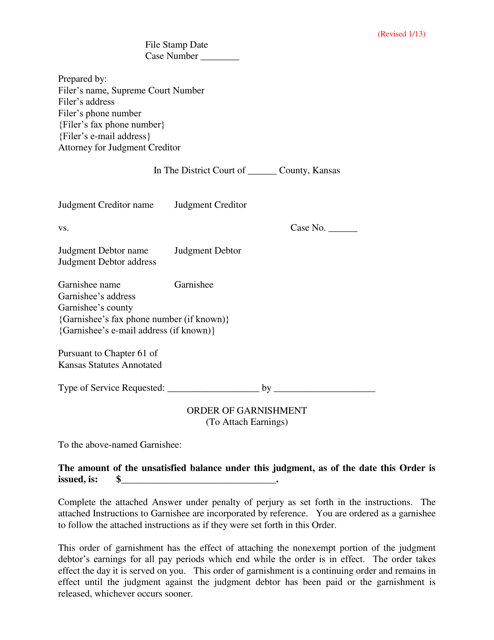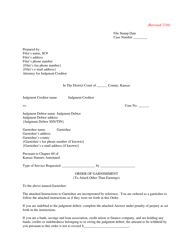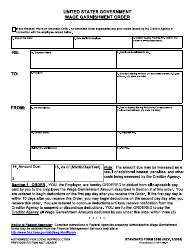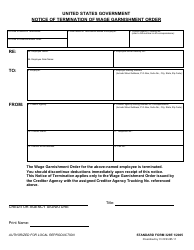Order of Garnishment - Kansas
Order of Garnishment is a legal document that was released by the Kansas District Courts - a government authority operating within Kansas.
FAQ
Q: What is an order of garnishment?
A: An order of garnishment is a legal document that allows a creditor to collect money owed by a debtor from their wages or other income.
Q: What is the purpose of an order of garnishment?
A: The purpose of an order garnishment is to enforce a judgment and help the creditor collect the money owed to them.
Q: Who can obtain an order of garnishment in Kansas?
A: In Kansas, a creditor who has obtained a judgment against a debtor can request an order of garnishment.
Q: What types of income can be garnished in Kansas?
A: In Kansas, most types of income can be garnished, including wages, salary, commissions, bonuses, pensions, and certain government benefits.
Q: How much of someone's income can be garnished in Kansas?
A: In Kansas, up to 25% of a person's disposable earnings can be garnished, or the amount by which their disposable earnings exceed 30 times the federal minimum wage, whichever is less.
Q: What is the process for obtaining an order of garnishment in Kansas?
A: The creditor must file a request with the court, provide proof of the judgment, and pay a fee. The court will then issue the order of garnishment, which is served on the debtor's employer or other payers of income.
Q: Can a debtor object to an order of garnishment in Kansas?
A: Yes, a debtor can file an objection to an order of garnishment within a certain timeframe. They may be able to claim exemptions or ask the court to modify the garnishment amount.
Q: How long does an order of garnishment last in Kansas?
A: An order of garnishment in Kansas remains in effect until the debt is paid in full, the court issues a release, or a certain amount of time has passed without any payments being made.
Form Details:
- Released on January 1, 2013;
- The latest edition currently provided by the Kansas District Courts;
- Ready to use and print;
- Easy to customize;
- Compatible with most PDF-viewing applications;
- Fill out the form in our online filing application.
Download a printable version of the form by clicking the link below or browse more documents and templates provided by the Kansas District Courts.









